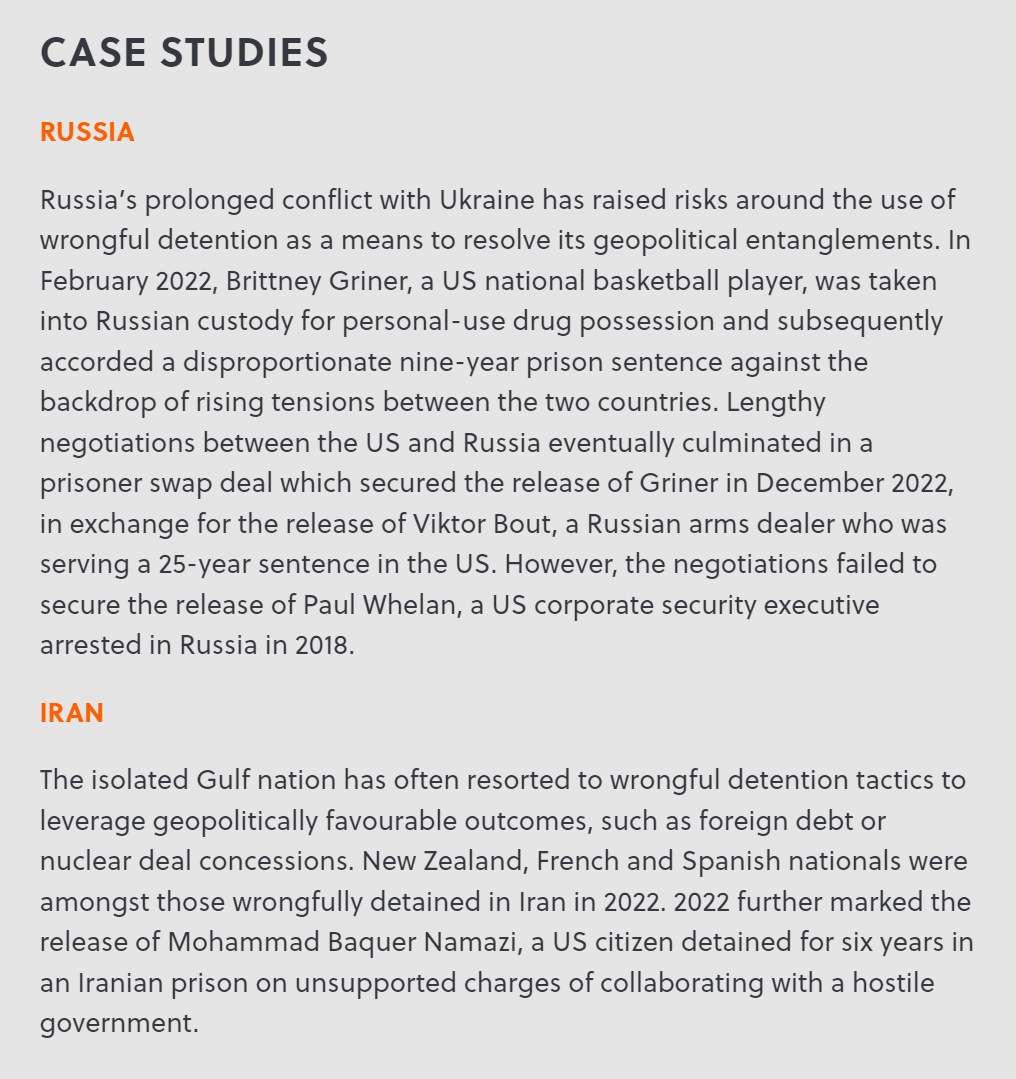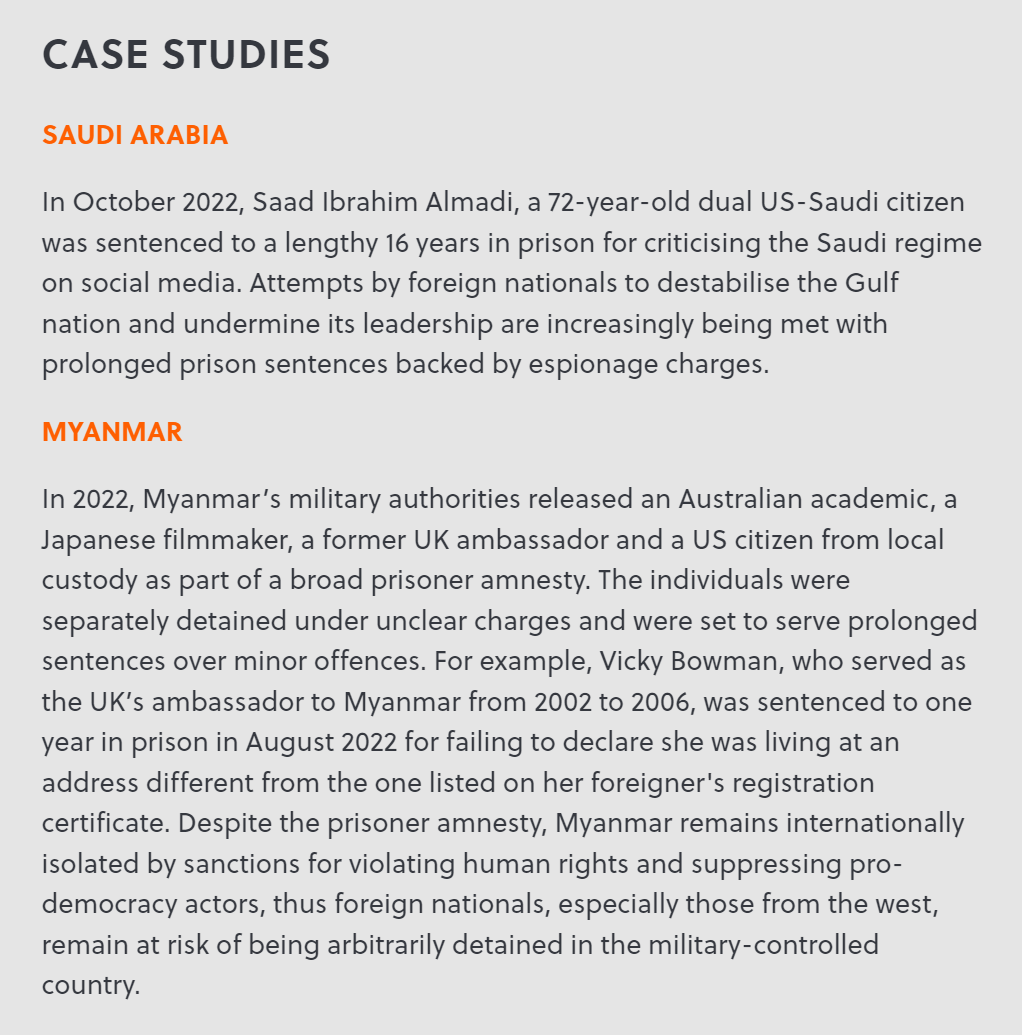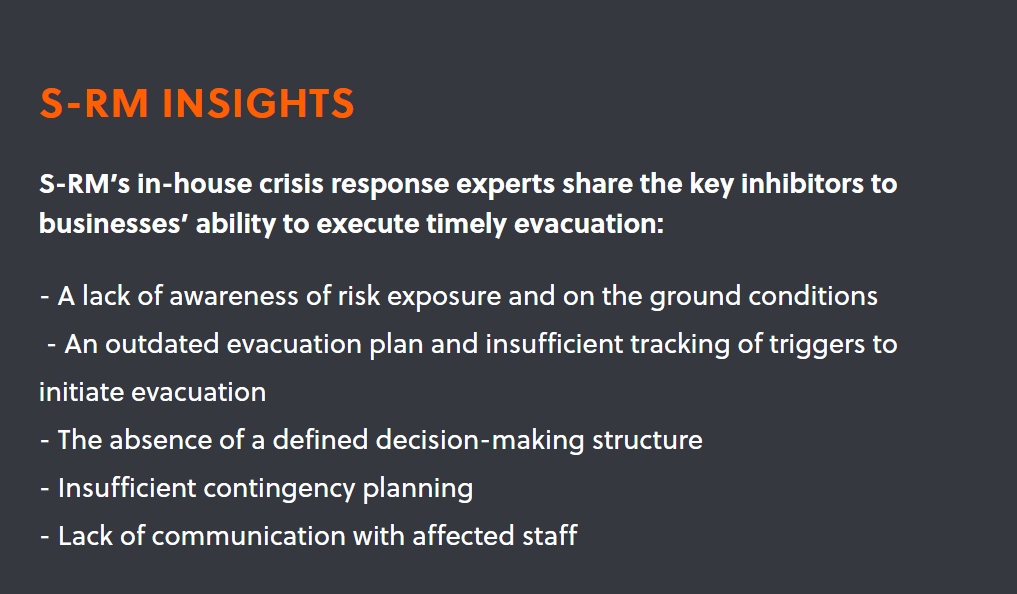Geopolitical rivalries: Pawns caught in the middle
The revival of travel for business and leisure is strongly underway. With travel bans, quarantines and onerous testing requirements all but eliminated, global passenger traffic is now just under 80 percent of pre-pandemic levels. And, as air travel is poised for further growth in 2023, traditional travel threats including petty crime, muggings, pickpocketing and commercial robberies will increasingly re-surface. However, additional travel security risks need to be considered as travel gathers pace against the global backdrop of rising geopolitical tensions. Russia’s invasion of Ukraine has turned into a protracted conflict with destabilising spillovers for the rest of Europe. The US-China rivalry is trending along an escalatory path. Iran remains geopolitically isolated without clear direction around a nuclear deal. Political rivalries underlining these tensions warrant a close eye on the wrongful detention of foreign nationals; a tool infrequently but historically used as leverage to gain concessions in foreign policy disputes or to secure prisoner swaps. Further, as geopolitical hotspots fluctuate in intensity, conflict risks will raise political evacuation concerns for businesses.
THE GEOPOLITICS OF WRONGFUL DETENTION
Most wrongful detention incidents have historically occurred in countries with authoritarian regimes, geopolitical scores to settle, or those imposed with western sanctions such as Iran, Russia, China, Myanmar, Venezuela, Syria and Russia. Specific motivations for arrests vary, from retaliatory or punitive measures against a geopolitical rival to the use of detainees as leverage to gain political or economic concessions. Victims at risk of wrongful detention have traditionally included foreign government officials, journalists, individuals with a military or intelligence background, or NGO personnel. Such victims are typically detained on espionage charges. However, given the politically motivated nature of arrests, even unconnected individuals from countries with strained relations with the host state risk being detained for minor infractions, such as recreational drug use, with the intention of them being used as a bargaining chip in bilateral negotiations down the line.
Incidents of wrongful detention in 2022 serve as a reminder that when geopolitical tensions between two countries are high, a degree of caution is advisable for travellers heading to countries ruled by authoritarian regimes.

THE GEOPOLITICS OF POLITICAL EVACUATION
The business revenue implications of growing economic challenges and lingering effects of the Covid-19 pandemic de-prioritised geopolitical risk planning for many businesses. However, as tensions increasingly unfold in 2023, conflict escalation, coups, and war are plausible geopolitical outcomes across entangled countries and regions. Such risks serve as a reminder for businesses to re-prioritise crisis management and political evacuation measures in their strategic planning considerations.
In August 2022, China’s enhanced military drills around Taiwan resulted in a partial closure of Taiwan’s airspace and seaports. Prolonged Chinese military drills resulted in inbound flights to Taiwan being diverted to Japan and South Korea and outbound flight cancellations, raising risks around the ability for foreign personnel to evacuate Taiwan in the event of a conflict escalation with China. The uncertainty around China’s reunification plans with Taiwan, and heightened US-China tensions stemming from US support for Taiwan, have resulted in a deterioration of Taiwan’s security environment, raising the need for businesses operating on the island to devise responsive political evacuation plans. Similarly, in Europe, the potential for conflict to extend beyond Russia and Ukraine’s borders should prompt businesses to consider political evacuation needs in their risk management plans for 2023

GEOPOLITICAL UNCERTAINTY AND HOTSPOTS IN 2023
The normalisation of international travel has taken off against intense manoeuvring in the geopolitical arena.
In 2023, motives for detaining foreign nationals could escalate in relation to US-led initiatives to counterbalance China’s growing influence. While in Iran, foreign nationals remain at risk of detention, especially during critical nuclear-related negotiations over the course of the year. Foreign nationals in Saudi Arabia can expect to face severe detention charges for minor acts of disapproval towards the country’s leadership or its foreign policy direction amid Saudi Arabia’s geopolitical entanglements with the US and Russia. And regrettably, those in custody in sanction-isolated Russia will continue to serve as bargaining chips to help achieve foreign policy objectives.
As western-led human rights motions have been unable to remove the grounds for wrongful detention in authoritarian states, the smallest offences by foreign nationals risk resulting in severe penalties amid heightened tensions.
Further, conflict proliferation on the back of intensifying global rivalries will sustain the need for political evacuation considerations by businesses. In 2023, the security situation in countries including Taiwan, Myanmar, and Yemen will remain fragile. However, of greater significance, the European and Asian regions will be prone to greater instability in their respective security environments. In Europe, the potential for direct NATO involvement risks expanding Russia’s military invasion of Ukraine beyond the borders of the two countries. While in Asia, discord between China and Taiwan, and maritime boundary disputes in the South China Sea, will test the region’s conflict resilience.

